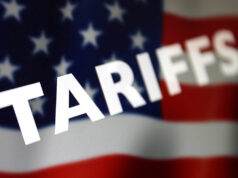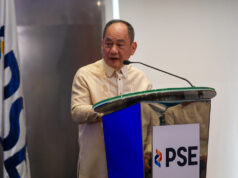Marcos orders military to maximize use of troops amid geopolitical tensions

By Kyle Aristophere T. Atienza, Reporter
PHILIPPINE President Ferdinand R. Marcos, Jr. on Monday ordered the Department of National Defense (DND) and Armed Forces of the Philippines (AFP) to review security strategies and maximize the deployment of forces amid geopolitical challenges.
“As we move now from focusing on ensuring internal security for the country, we now have to bolster the country’s external defenses,” he said at the 67th anniversary of the Naval Special Operations Command (Navsocom) in Cavite province south of the Philippine capital.
“I exhort the DND and the AFP to maximize and strategically review the deployment of our forces to ensure that their strategies remain responsive to the current and future geopolitical realities,” he added.
The President said the military must harness the skills of specialized units in preparing for all contingencies. The naval command’s expertise in sea, air and land should be used to support naval defense and enhance maritime security, he added.
Navsocom, an elite unit of the Philippine Navy, has helped the government against smuggling and other illegal activities at sea, he said.
The Philippines has been boosting defense ties with its allies including the US, Japan and Australia amid worsening tensions with China.
Mr. Marcos is on the right track to pursue security ties with allies to deter Chinese aggression in the South China Sea amid opposition from minority lawmakers and militant groups, political analysts said.
The geopolitical landscape has changed, with an increasingly belligerent China as well as authoritarian threats including from one-man state North Korea, they added.
“These people are still thinking that the world has not become what it is right now,” Antonio P. Contreras, who used to teach political science at De La Salle University in Manila, said by telephone. “Even if the Philippines wants to stay out of any conflict, it will always be implicated because we are strategically located. And China is getting bolder and bolder.”
The Philippines and Japan have agreed to start talks on a reciprocal troop access deal, strengthening military cooperation amid rising maritime tensions in the region and an increasingly assertive China.
Japanese Prime Minister Fumio Kishida, who visited Manila at the weekend, said Mr. Marcos and he had agreed to work together closely with the United States and, in a veiled reference to China, shared concern about “unacceptable” attempts to “unilaterally change the status quo by force” in the East and South China Seas.
‘PACIFIST STANCE’
Senate President Juan Miguel F. Zubiri at the weekend said they would ratify the Philippine-Japan deal.
But Senate Minority Leader Aquilino Martin “Koko” L. Pimentel III and some minority congressmen said the Philippines should never allow itself to become a base of any foreign military.
The senator noted amid discussions on the proposed military accord, which is similar to the Philippines’ status of visiting forces agreement with Australia and visiting forces agreement with the US, there has been no talk of whether Filipino troops would be allowed to stay in Japan.
Bagong Alyansang Makabayan (Bayan) accused Washington of making the Philippines “a staging ground” for its military in Asia.
“The US keeps telling the Philippines that they are here for our security. That’s a fake claim, if ever there was one,” it said in a statement, as it opposed the joint naval drills among the Philippines, US, Japan and South Korea set for Nov. 9. The United Kingdom will observe the drills.
Hansley A. Juliano, who teaches political science at the Ateneo de Manila University, said Bayan and its allies such as the Makabayan bloc in Congress are “ideologically committed to their belief that any foreign presence involving the US is an imposition of their neocolonial power.”
“That is predictable, expected and perhaps grounded in the historical past,” he said in a Facebook Messenger chat.
The three-year Philippine-American war that started in 1899 killed more than 4,000 Americans and more than 20,000 Filipino combatants, according to the US State Department, adding that as many as 200,000 Filipino civilians “died from violence, famine and disease.”
“These injuries will continue to cast a cloud on the goodwill of the American presence here. They (critics) have the right to keep raising criticisms and opposition in this vein,” Mr. Juliano said. But these critics have failed to provide a solution beyond asserting an “independent foreign policy.”
“The pacifist stance can only be sustained when it is backed by deterrence to war. We are already surrounded by China and our neighbors in ASEAN (save perhaps Vietnam) are inconsistent about how to stand up to China,” he added.
While the Philippines should have an independent foreign policy, “it needs a good number of sticks and carrots” to get what it wants, Joshua Bernard B. Espeña, who teaches foreign relations at the Polytechnic University of the Philippines, said in a Facebook Messenger chat.
“The logic of the Filipino struggle and the danger of becoming a battleground is an inherent risk for any country willing to defend it,” he added.
Mr. Espeña said left-leaning groups’ opposition to the modernization of the Philippine military “under the pretext of militarization of politics jeopardizes its “very interest in staving off external powers in our waters.”
Aside from the South China Sea dispute, the region also must deal with tensions in the Taiwan Strait. Nuclear threats from North Korea also continue to hound the Korean Peninsula.
Opposition to the Philippines’ security alliance with the US — Manila is a treaty ally of Washington — is nothing new. The Senate in 1991 rejected the renewal of the lease of Philippine military bases to the US.
This led to the dismantling of an American air base in Clark, Pampanga and a US naval base in Subic, Olongapo. The two sites have since been converted into economic hubs.



